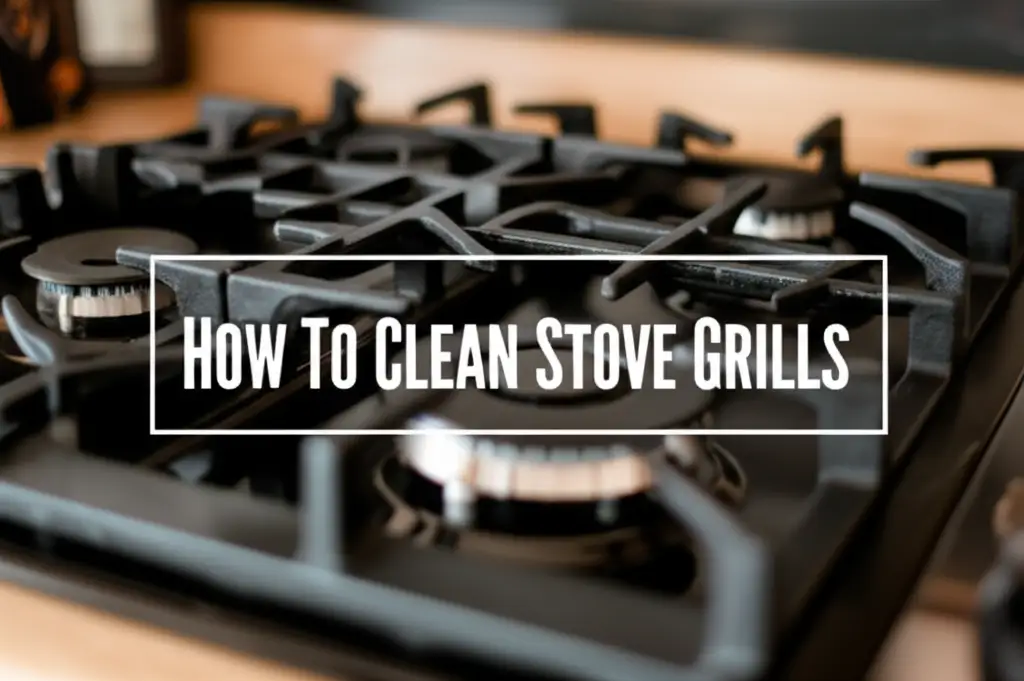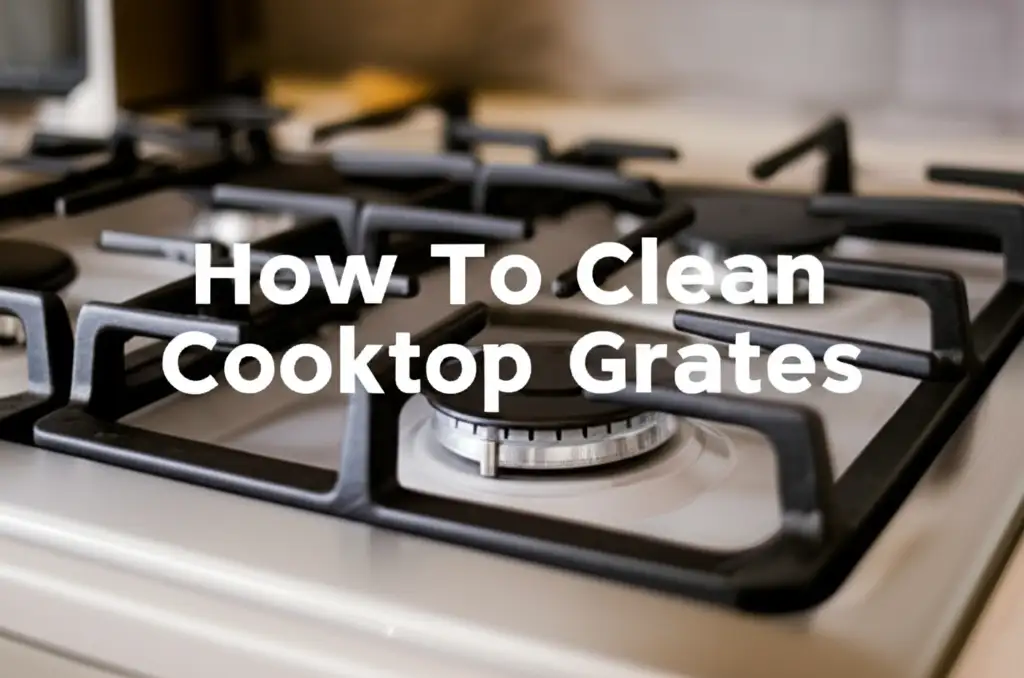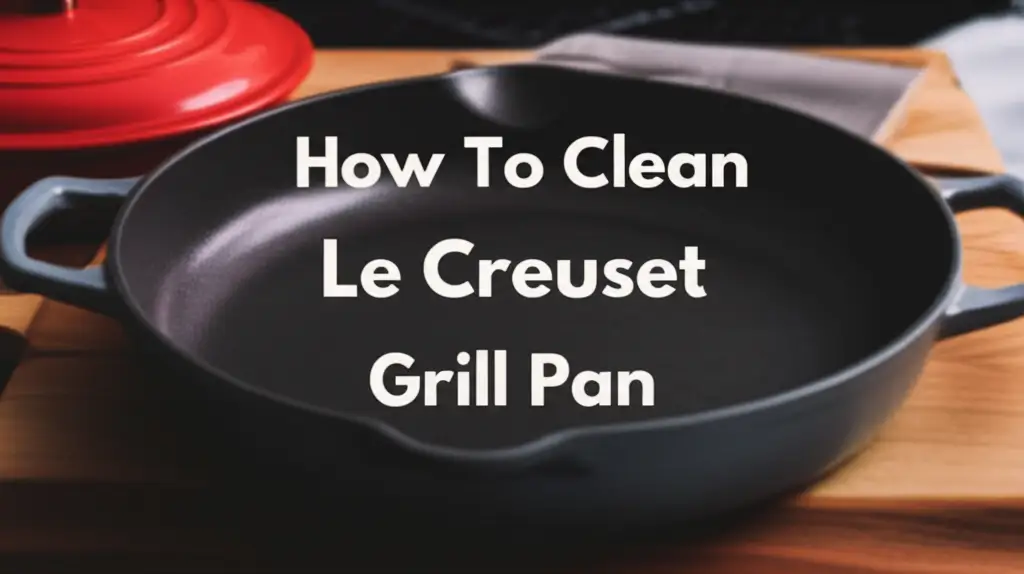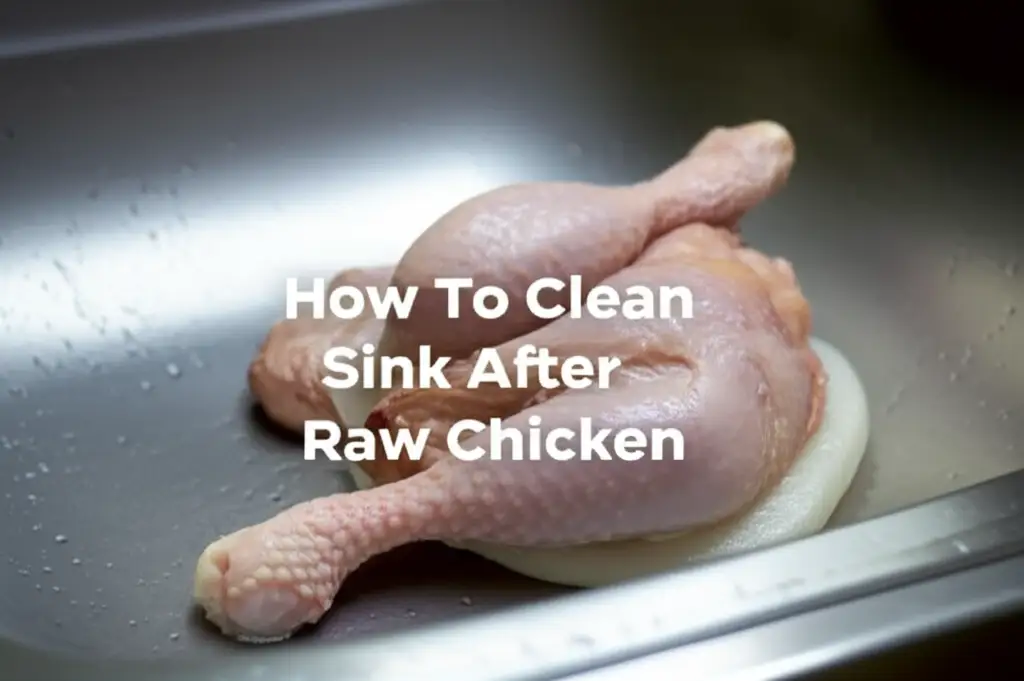· Kitchen Cleaning · 15 min read
How To Clean Stove Grills

Master How To Clean Stove Grills for a Sparkling Kitchen
Ever wondered how to get those greasy, grimy stove grills truly clean? You are not alone. Stove grills take a beating from daily cooking, collecting spills, burnt-on food, and grease. A dirty grill not only looks bad but can also affect cooking performance and kitchen hygiene. Neglecting this task can lead to stubborn stains that seem impossible to remove.
Cleaning your stove grills properly makes a big difference. It extends their life and keeps your cooking area sanitary. In this article, I will show you effective methods to clean stove grills, no matter how dirty they are. We will cover different grill materials, essential tools, deep cleaning techniques, and simple maintenance tips. Get ready to transform your kitchen and enjoy a truly spotless cooking space.
Takeaway
- Identify Grill Material: Know if your grills are cast iron, enamel, or stainless steel before cleaning.
- Soak Stubborn Grime: Use hot water and dish soap for heavy grease build-up.
- Apply Cleaning Pastes: Baking soda and vinegar make powerful cleaning solutions.
- Scrub with Care: Use non-abrasive scrubbers to avoid damage.
- Rinse and Dry Thoroughly: Prevent rust and water spots by drying completely.
- Clean Regularly: Wipe down grills after each use to prevent future build-up.
Clear Answer to the Main Query
To clean stove grills, first remove them and scrape off loose debris. Soak the grills in hot, soapy water, or apply a paste of baking soda and water for tough stains. Scrub the grills using a non-abrasive brush or sponge. Rinse thoroughly with clean water and dry completely before placing them back on the stove.
Understanding Different Stove Grill Materials
Stove grills come in various materials, each needing a specific cleaning approach. Knowing your grill material helps you choose the right method. This prevents damage and ensures an effective clean. Most stove grills are made from cast iron, porcelain enamel, or stainless steel. Each material has unique properties and care instructions.
Cast iron grills are heavy and durable. They hold heat well, making them popular for cooking. However, cast iron is prone to rust if not dried properly. They also absorb oils and can develop a seasoned finish over time. This seasoning needs protection during cleaning. Harsh chemicals or scrubbing can remove the seasoning. For a deeper dive into their care, learn how to clean cast iron stove grates specifically.
Porcelain enamel grills are lighter and often have a glossy finish. This material is easier to clean than cast iron. Enamel resists rust and typically does not require seasoning. However, enamel can chip or scratch if you use abrasive scrubbers. Avoid metal brushes or harsh scouring pads on these grills.
Stainless steel grills are less common but offer a modern look. They are durable and resistant to rust. Stainless steel can show fingerprints and water spots easily. It also scratches more easily than enamel if you use abrasive tools. Gentle cleaners and soft cloths work best for stainless steel. Understanding these material differences is the first step to effective stove grill cleaning.
Essential Tools and Cleaning Agents for Stove Grills
Gathering the right tools and cleaning agents before you start makes the job much easier. You do not need many specialized items. Most of what you need you probably already have in your kitchen or cleaning cabinet. Having everything ready saves time and ensures a smooth cleaning process. This preparation is key to efficient stove grill cleaning.
You will need a few basic tools. Rubber gloves protect your hands from grease and cleaning solutions. A sturdy brush, like a nylon scrubbing brush, helps remove caked-on food. Avoid metal brushes unless specifically for very tough cast iron, as they can scratch other materials. Old toothbrushes are great for reaching small crevices. A soft cloth or sponge is useful for wiping and rinsing. For general stove top maintenance, knowing how to clean stove burner rings is also helpful as they often accumulate similar grime.
Common household cleaning agents work wonders on stove grills. Dish soap is excellent for cutting through grease. White vinegar is a natural degreaser and deodorizer. Baking soda acts as a gentle abrasive and helps lift stubborn stains. For really tough build-up, you might consider a heavy-duty degreaser or oven cleaner, but always check if it’s safe for your grill material. Remember to read product labels carefully. These simple items form the foundation of effective stove grill cleaning.
Deep Cleaning Methods for Stubborn Stove Grills
Sometimes, stove grills accumulate so much grime that a simple wipe-down is not enough. For these challenging situations, deep cleaning methods are necessary. These techniques tackle burnt-on food, thick grease, and tough stains effectively. Always ensure your grills are cool before you begin deep cleaning. This prevents burns and makes handling easier.
Soaking Away Grime
One of the most effective deep cleaning methods is soaking. This works well for all grill materials, though cast iron needs quick drying afterward. First, remove the grills from the stove. Scrape off any large, loose food particles with a spatula or old credit card. Fill a large sink or a sturdy tub with very hot water. Add a generous amount of dish soap to the water. Place the stove grills into the soapy water, making sure they are fully submerged. Let them soak for at least 30 minutes, or even overnight for extremely dirty grills. The hot water and soap work to loosen the tough grease and burnt residue. Soaking helps break down the bond between the grime and the grill surface, making scrubbing much easier. This method saves you a lot of scrubbing effort.
Baking Soda and Vinegar Power
For stubborn spots that soaking alone cannot conquer, a baking soda paste is a powerful ally. After soaking, remove the grills and drain the excess water. Sprinkle a thick layer of baking soda over the entire grill surface, focusing on the dirtiest areas. For extra cleaning power, you can spray white vinegar directly onto the baking soda. The mixture will fizz and bubble, indicating a chemical reaction that helps break down tough stains. Allow this paste to sit on the grills for 15-30 minutes. The baking soda acts as a gentle abrasive, while the vinegar’s acidity helps cut through grease.
After the paste has sat, use a nylon scrubbing brush or a non-abrasive pad to scrub the grills. You will notice the grime coming off much more easily. For intricate areas, an old toothbrush works well. Rinse the grills thoroughly under warm running water. Ensure all baking soda residue is gone. For related cleaning challenges on your stove, you might also find it useful to know how to clean stove drip pans as they often face similar grease issues. This combination of baking soda and vinegar is a proven method for tackling tough grease and residue effectively.
Heavy-Duty Degreasers and Oven Cleaners
When faced with incredibly stubborn, baked-on grease, a commercial degreaser or oven cleaner might be your best option. These products contain stronger chemicals designed to dissolve tough residues. Always check the product label for specific instructions and warnings. Ensure the cleaner is safe for your stove grill material. Some strong cleaners can damage certain finishes, especially on porcelain enamel.
Wear rubber gloves and work in a well-ventilated area when using these products. Spray the degreaser or oven cleaner onto the grills. Allow it to sit for the recommended time, usually 15-30 minutes. Do not let the product dry on the surface. After the dwell time, scrub the grills with a stiff nylon brush. The grime should lift away with less effort. Rinse the grills thoroughly multiple times to remove all chemical residue. Dry them completely immediately after rinsing. Proper rinsing prevents streaks and potential chemical build-up. This method is highly effective for extreme cases of grime.
Gentle Cleaning for Everyday Stove Grills
While deep cleaning is essential for tough grime, regular, gentle cleaning keeps your stove grills looking good day-to-day. This prevents heavy build-up and makes future deep cleans much easier. Consistent light cleaning saves you time and effort in the long run. It also helps maintain kitchen hygiene.
After each use, or at least daily, wipe down your stove grills. Allow the grills to cool completely first. Use a damp cloth with a little dish soap. Simply wipe away any fresh spills, food particles, or grease splatters. This removes grime before it has a chance to bake on and become a stubborn stain. This quick wipe-down prevents accumulation and keeps your kitchen looking tidy. For general cleanliness around the burner areas, learning how to clean black enamel stove top can complement your grill cleaning routine, especially if your stove has an enamel finish.
For slightly more challenging, but not baked-on, stains, a vinegar spray works wonders. Mix equal parts white vinegar and water in a spray bottle. Spray the solution directly onto the stove grills. Let it sit for a few minutes to loosen the grime. Then, wipe with a clean, damp cloth. Vinegar is a natural degreaser and also helps disinfect. It leaves your grills sparkling without harsh chemicals. This method is safe for all grill types and helps maintain a fresh kitchen.
Remember, consistent light cleaning is a preventative measure. It saves you from the frustration of tackling heavily crusted grills later. Make it a habit to wipe your grills down regularly. This simple routine significantly extends the time between deep cleaning sessions. It also promotes a cleaner, more inviting kitchen environment every day.
Maintaining Stove Grills: Prevention is Key
Keeping stove grills clean is easier when you prevent excessive build-up from happening in the first place. Proactive maintenance saves a lot of scrubbing later. Implementing a few simple habits can make a huge difference. Think of it as protecting your cooking investment.
One important prevention tip is to wipe spills immediately. If food or liquid spills onto the grill while cooking, turn off the burner and let the grill cool slightly. Then, carefully wipe the spill with a damp cloth or paper towel. Fresh spills are much easier to remove than dried, baked-on messes. This quick action prevents stains from setting. It also stops grime from spreading to other parts of the stove. For overall stove cleanliness, knowing how to clean burn marks off stove is also useful, as burnt spills can affect both grills and the surrounding stovetop.
Consider using splatter guards when frying or cooking greasy foods. These mesh screens sit over your pan and catch oil splatters. They significantly reduce the amount of grease that lands on your stove grills and surrounding areas. This simple tool minimizes the mess and keeps your cooking space cleaner. Splatter guards are a small investment that yields big cleaning benefits.
Regular seasoning for cast iron grills also falls under maintenance. Seasoning creates a protective, non-stick layer. It also makes cast iron easier to clean. To season, after cleaning and drying, apply a very thin layer of high-smoke-point oil (like flaxseed or grapeseed) to the grates. Bake them upside down in the oven at 400-450°F (200-230°C) for an hour. Let them cool in the oven. This process builds a durable, easy-to-clean surface. Proper seasoning protects your cast iron grills from rust and food sticking.
When to Call a Professional for Stove Grill Cleaning
While most stove grill cleaning tasks are manageable for homeowners, sometimes a professional touch is needed. There are situations where the grime is too severe or the grills require specialized care. Recognizing these moments can save you time, effort, and potential damage to your appliance. Professional cleaners have specific tools and solutions for extreme cases.
If your stove grills have extreme, long-term build-up that does not respond to common deep cleaning methods, consider a professional. Years of baked-on carbon and grease can become almost impossible to remove with household products. Professionals often use industrial-grade degreasers and techniques like vapor steaming or specialized soaking tanks. These methods break down the toughest residues safely. They can restore your grills to near-new condition.
Damage to the grill material is another reason to call an expert. If your cast iron grills are heavily rusted or your enamel grills have significant chips, professional restoration might be an option. Some specialists can re-season cast iron or repair minor enamel damage. This extends the life of your grills and avoids the cost of replacement. They also handle other stove components, such as when you might need to clean parts of an electric stove top or other kitchen appliances. While we are discussing grills, knowing how to clean an electric stove top can also be helpful for overall kitchen cleanliness.
Lastly, if you lack the time, physical ability, or simply prefer not to deal with the messy task, professional cleaning services are a convenient solution. They can include stove grill cleaning as part of a comprehensive kitchen deep clean. This ensures a spotless kitchen without you lifting a finger. Professional services offer a convenient way to maintain a high level of cleanliness in your home.
Safety First: Important Considerations When Cleaning Stove Grills
Cleaning stove grills involves handling hot water, cleaning chemicals, and sometimes sharp tools. Prioritizing safety is paramount to prevent accidents and injuries. A careful approach ensures effective cleaning without harm. Always read warning labels on cleaning products and follow their instructions.
Before you touch any part of your stove or grills, ensure the appliance is completely cool. Never attempt to clean hot grills. Hot surfaces can cause severe burns instantly. Turn off all burners and allow ample time for the stove to cool down. This simple step prevents one of the most common cleaning accidents. Even seemingly warm grills can hold enough heat to cause injury.
Always wear appropriate personal protective equipment (PPE). Rubber gloves are essential to protect your hands from harsh chemicals, hot water, and sharp edges. If using strong degreasers or oven cleaners, consider wearing safety glasses to protect your eyes from splashes. Working in a well-ventilated area is also crucial, especially when using chemical cleaners. Open windows or turn on your kitchen exhaust fan to ensure good air circulation. Inhaling chemical fumes can cause respiratory irritation or other health problems.
Proper disposal of waste and cleaning solutions is also important. Do not pour strong chemical cleaners down the drain without checking local regulations. Some chemicals might harm plumbing or the environment. Follow the product’s disposal instructions. Clean up any spills of cleaning solutions immediately to prevent slips or damage to surrounding surfaces. Keeping your work area tidy helps maintain safety throughout the cleaning process. By following these safety guidelines, you can clean your stove grills effectively and without risk.
FAQs About Cleaning Stove Grills
How often should I clean stove grills?
You should wipe down stove grills after each cooking session to remove fresh spills. Perform a gentle cleaning once a week to prevent build-up. A deep clean is recommended every 1-3 months, depending on how often you cook and how messy your cooking gets. Regular maintenance saves significant effort later on.
Can I put stove grills in the dishwasher?
It depends on the material. Porcelain enamel and stainless steel grills are often dishwasher-safe. Always check your stove’s user manual first. Cast iron grills should never go in the dishwasher. The harsh detergent and high heat can strip their seasoning and cause rust. Hand washing is best for cast iron.
What if my stove grills are rusty?
For cast iron grills with light rust, you can scrub the rust with a steel wool pad and then re-season the grill. For heavier rust, a paste of baking soda and water or a specialized rust remover for cast iron may be needed. Always re-season cast iron after rust removal to prevent recurrence.
What products should I avoid on stove grills?
Avoid abrasive scouring pads or metal brushes on porcelain enamel and stainless steel grills. They can cause scratches. Do not use strong oven cleaners on cast iron, as they strip seasoning. Always check product labels for compatibility with your grill material. Harsh chemicals can also damage stove top finishes.
How do I clean cast iron stove grills without damaging them?
To clean cast iron grills, avoid dishwashers and harsh chemicals. Soak them in hot, soapy water for 15-30 minutes. Scrub with a non-abrasive brush or sponge. Rinse thoroughly and dry immediately to prevent rust. Once dry, apply a very thin layer of cooking oil and bake to re-season them. For more details, consult how to clean cast iron stove grates.
Can I use a steam cleaner on stove grills?
Yes, a steam cleaner can be effective for loosening grease and burnt-on food. The hot steam helps to break down stubborn grime, making it easier to wipe away. Always follow the steam cleaner manufacturer’s instructions. Use appropriate attachments for scrubbing. Steam cleaning is generally safe for all grill materials and avoids harsh chemicals.
Conclusion
Cleaning your stove grills does not have to be a dreaded chore. By understanding the different materials and using the right tools and techniques, you can keep your kitchen looking pristine. We have covered everything from gentle daily maintenance to powerful deep cleaning methods. Regular care not only improves the appearance of your stove but also ensures better cooking performance. A clean grill prevents food from sticking and reduces fire hazards from built-up grease.
Remember, consistent effort is key. A quick wipe after each use can save you hours of scrubbing later. For stubborn grime, methods like soaking or baking soda paste are highly effective. Always prioritize safety by letting grills cool and wearing protective gear. I encourage you to try these methods and make stove grill cleaning a regular part of your kitchen routine. You will love the results. A sparkling clean stove makes cooking more enjoyable and your entire kitchen feel fresher. Start today and enjoy a truly clean cooking space!
- stove cleaning
- grill grates
- kitchen hygiene
- cast iron cleaning
- deep cleaning




